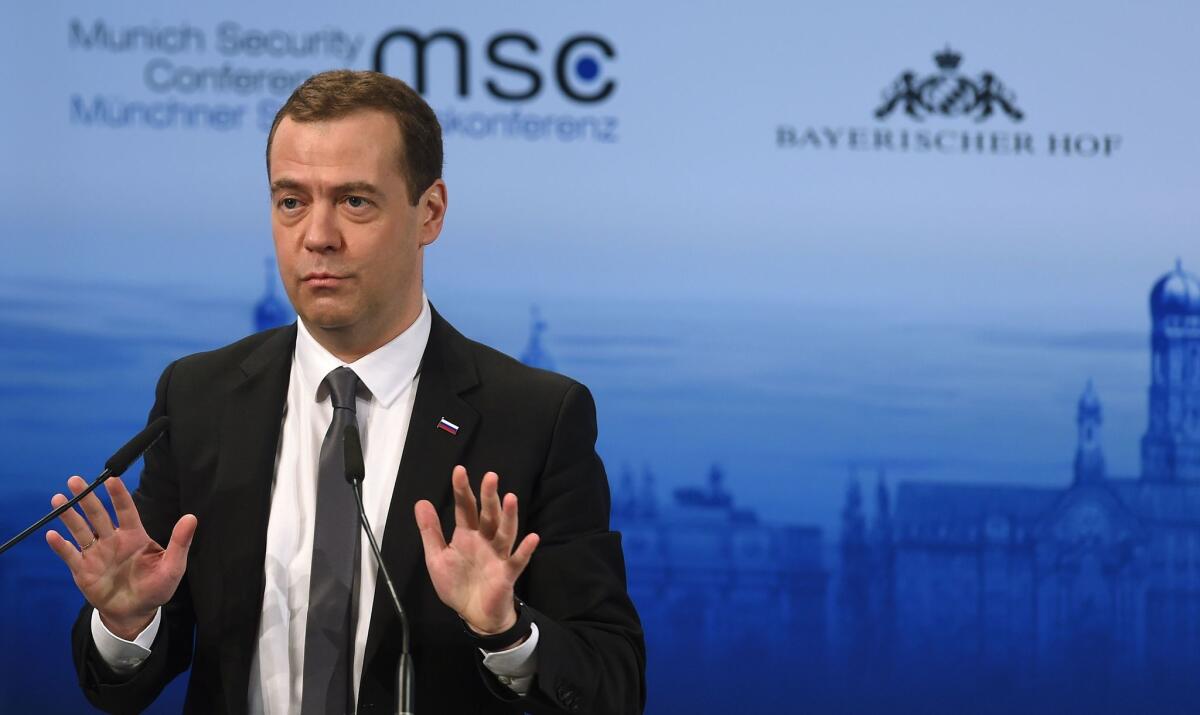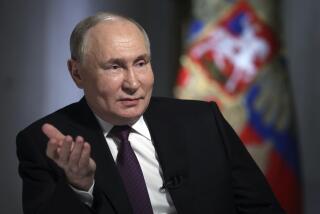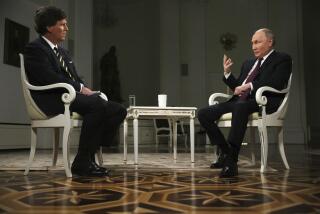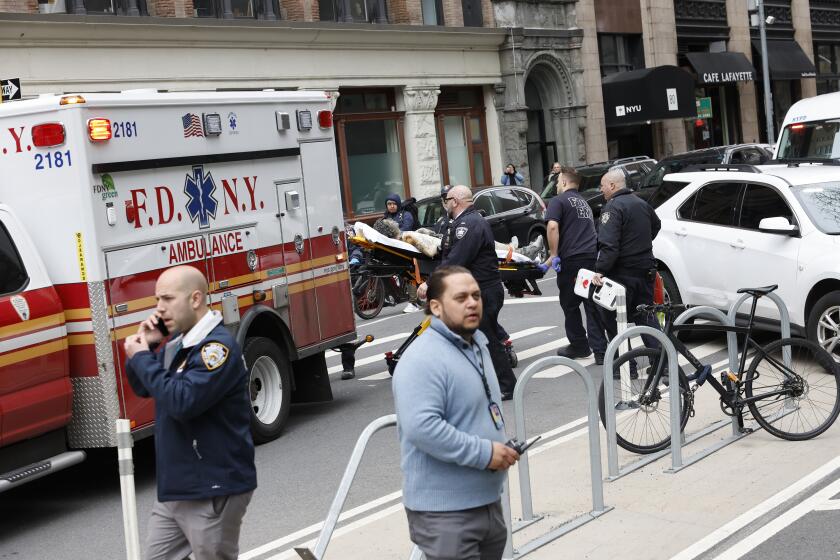Russian premier: ‘We have slid into ... a new Cold War’

Russian Prime Minister Dmitry Medvedev speaks at the Munich Security Conference in Germany on Saturday.
Russian Prime Minister Dmitry Medvedev raised the specter of a new Cold War on Saturday and compared the current tensions between Russia and the West to the 1962 Cuban Missile Crisis, which brought the world to the brink of nuclear war.
“NATO’s political stance toward Russia remains unfriendly and isolated,” he said in televised remarks at an international security conference in Munich, Germany. “One can say even more harshly, we have slid into the times of a new Cold War.”
Relations between Russia and the West have been in a downward spiral since Moscow’s 2014 annexation of Crimea and support of hostilities in eastern Ukraine, which prompted a series of crippling economic sanctions against Russia. The relationship between Moscow and the West has become further strained by Russia’s continuing support for Syrian President Bashar Assad, including a bombing campaign against Western-supported rebel groups.
Join the conversation on Facebook >>
Medvedev served as Russian president in 2008-12 while his mentor, Vladimir Putin, was prime minister, and his remarks in Munich presumably had Putin’s stamp of approval. His reference to the Cuban Missile Crisis was oblique but unmistakable.
“I sometimes wonder: Are we in 2016 or in 1962?” he said, addressing Western leaders, security officials and diplomats at the conference.
In his own remarks to the conference, U.S. Secretary of State John F. Kerry said that “the Cold War is long over,” although he said there was still a need “for the courage and the resolve in defending liberty and in pursuing peace.”
NATO Secretary General Jens Stoltenberg was somewhat tougher in his remarks. “We have seen a more assertive Russia, a Russia which is destabliizing the European security order,” he said. “NATO does not seek confrontation and we don’t want a new Cold War. At the same time, our response has to be firm.”
While he called for dialogue with Russia, Stoltenberg added that NATO “is undertaking the biggest reinforcement of our collective defense in decades, to send a powerful signal to deter any aggression or intimidation. ... We are in a new reality with Russia.”
Ironically, Munich was the venue of Putin’s fiery 2007 speech that is widely seen as Moscow’s attempt to renew Cold War rhetoric and reclaim its superpower status. Putin accused the West of creating a “unipolar world” and accused NATO of “moving closer” to Russia’s borders.
Medvedev, whose presidency was seen as a period of a relative thaw, added that Russia and NATO have cut short their exchanges on security issues.
Responding to Western and Syrian opposition claims that Russian airstrikes have hit civilian targets, Medvedev urged closer military cooperation with the United States in settling the five-year-old war.
“The military must keep in constant contact,” he said. “They should call each other a dozen times a day. Otherwise there will always be skirmishes and conflicts.”
The Syrian opposition and the United States have accused Russia of bombing so-called moderate opposition groups backed by the West, while Russia insists it is targeting Islamic State positions.
“To date, the vast majority, in our opinion, of Russia’s attacks have been against legitimate opposition groups,” Kerry said. “Obviously, if people who are ready to be part of the political process are being bombed we’re not going to have much of a conversation.”
Russia has vehemently supported Assad’s regime and objected to proposals by the West and Sunni Arab states to remove him from power.
Kerry also urged Russia to de-escalate the situation in eastern Ukraine, urging Moscow to stick to the cease-fire accords reached last year in Minsk, the capital of neighboring Belarus.
“Russia has a simple choice: fully implement Minsk or continue to face economically damaging sanctions,” he said.
The sanctions, along with plummeting oil prices, sent the Russian economy into a recession, exacerbated by corruption and increased military spending.
However, a massive anti-Western campaign in the Kremlin-controlled media had kept Putin’s approval ratings well above 80%.
Mirovalev is a special correspondent.
MORE WORLD NEWS
Hong Kong’s unexpected box office hit: A dystopian film on city’s political future
Pope warns Mexican church of dealing with ‘today’s Pharoahs’ at the expense of the poor
How the Virgin of Guadalupe embodied Mexican identity and inspired millions, including Pope Francis
More to Read
Start your day right
Sign up for Essential California for news, features and recommendations from the L.A. Times and beyond in your inbox six days a week.
You may occasionally receive promotional content from the Los Angeles Times.






